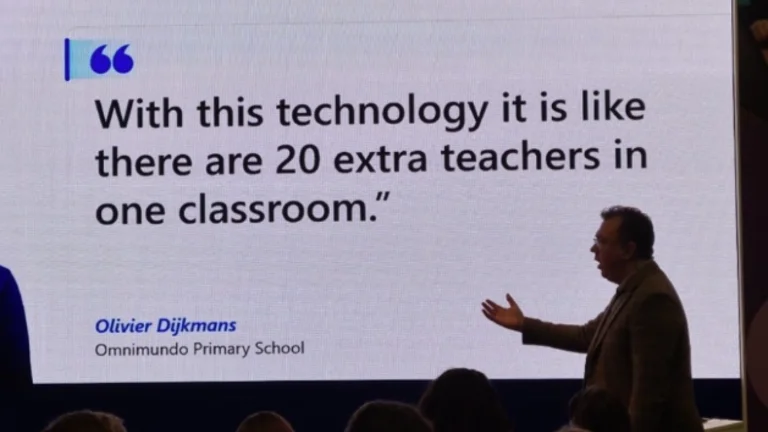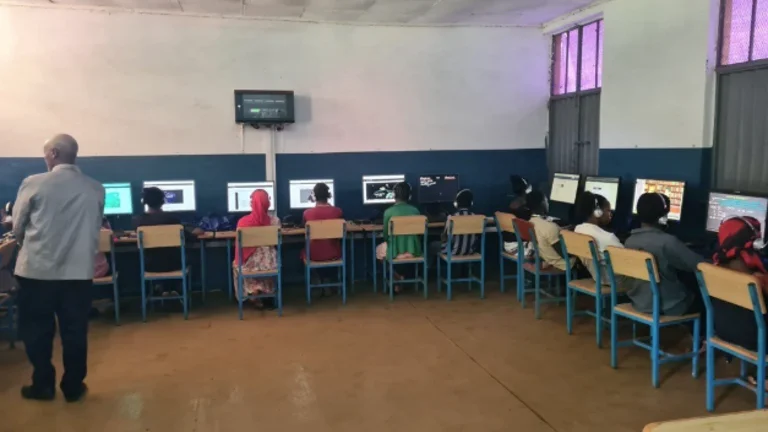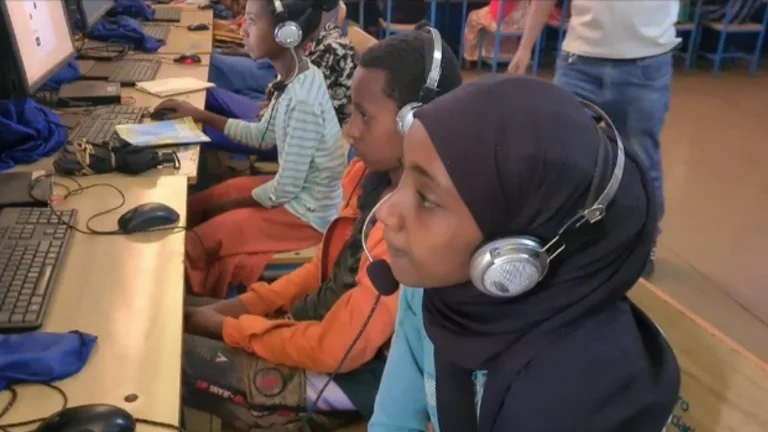Twenty-Two Extra Teachers in a Classroom
a first hand account by-Yohannes Keliku (Education Programme Lead)
During my recent visit to Assosa Primary School, where the Pharo Foundation has established a Computer Assisted Learning (CAL) lab, I was reminded of a quotation from a workshop at Bett UK 2023. Intrigued by how it resonated with our project goals, I captured a picture of the slide.

Assosa Primary School’s CAL lab is equipped with 22 student workstations and a teacher-controlled server. These computers are loaded with thousands of upper primary level digital resources and an interactive, curated national curriculum. This setup enables both teacher-guided and self-paced learning, along with real-time progress assessment.
Despite schools being in recess during my visit, I was pleasantly surprised to see all the PCs occupied by curious students. Their focus and engagement were so intense that they didn’t even notice our group entering the room. With headsets on, their hands alternated between the mouse, keyboard, and taking notes. Some were solving math problems, others conducting science experiments, exploring planets, or practicing English. It truly felt like there were twenty-two extra teachers in the classroom.

One of the regular attendees of the CAL lab is 13-year-old Sifen Gosaye. She shared that the only time she misses visiting the lab is during power outages. Thanks to the dedicated school director Ato Yalew Adinew, this issue has been resolved with the school’s purchase of a small generator to power the lab. Sifen, who ranked first in her class as she moved from grade 7 to 8, noted that the CAL lab has significantly contributed to her success, even though it was set up mid-year last year.
Sifen was also among the students who visited Pharo Homosha Girls’ Boarding School. Impressed by the confidence and English proficiency of the girls there, Sifen is determined to earn her place at Homosha Boarding School in the 2025/6 academic year.

As technology continues to evolve and affect all aspects of our lives, its integration into education is imperative. The question is how we can make sure all students from different socio-cultural backgrounds and geographies access technology and technology assisted learning that helps them to thrive in the increasingly globalised economy.
Pharo Foundation, with its new accelerated education project in Benishangul Gumuz region of Ethiopia, enables the curation and digitisation of the upper primary local curriculum for the first time in partnership with Camara Education.
Establishing computer assisted learning labs in two public primary schools, the project aims at providing access to quality, relevant and interactive education for more than 2,300 students and empowering teachers with basic ICT and use of ICT in education.